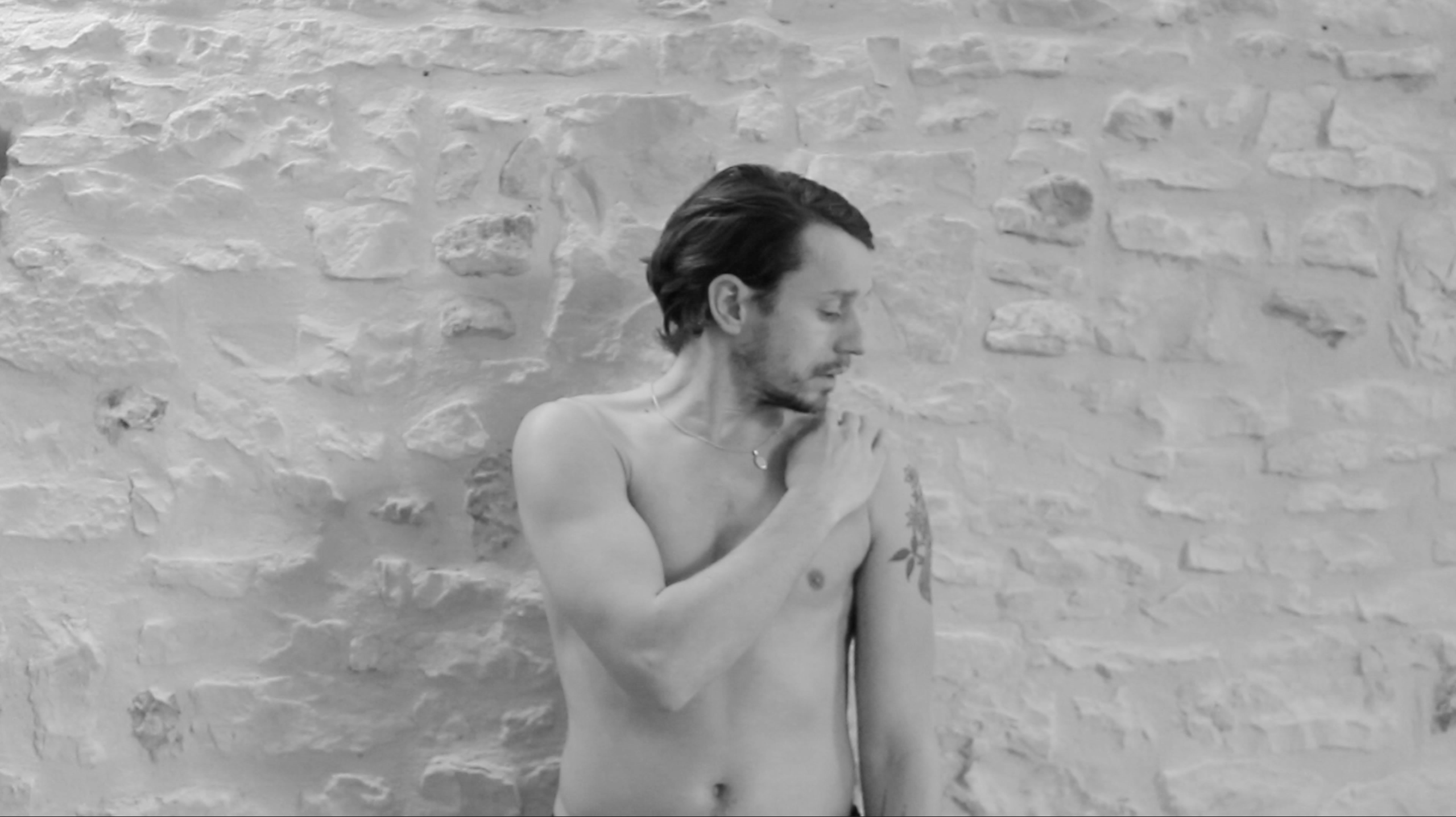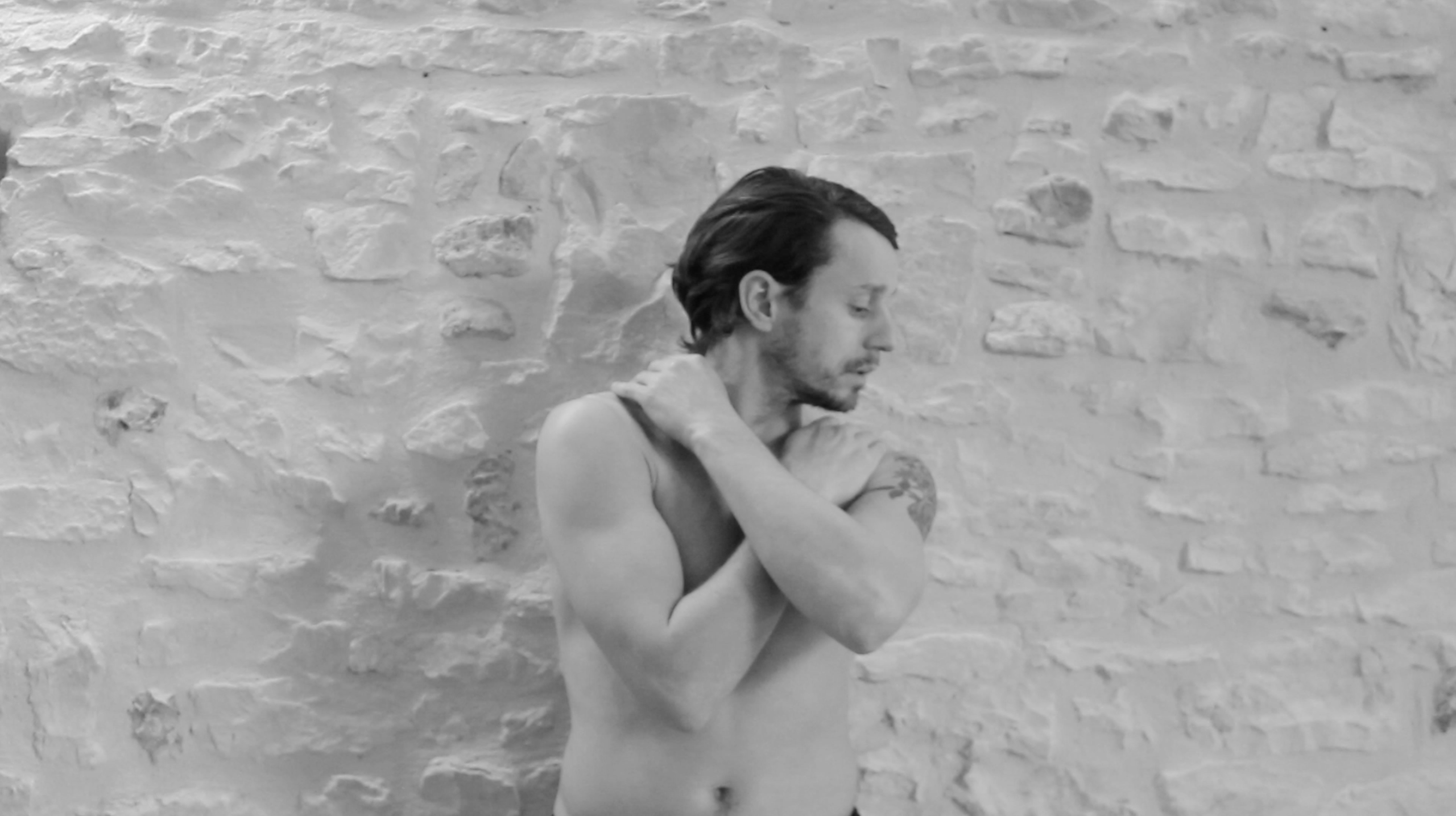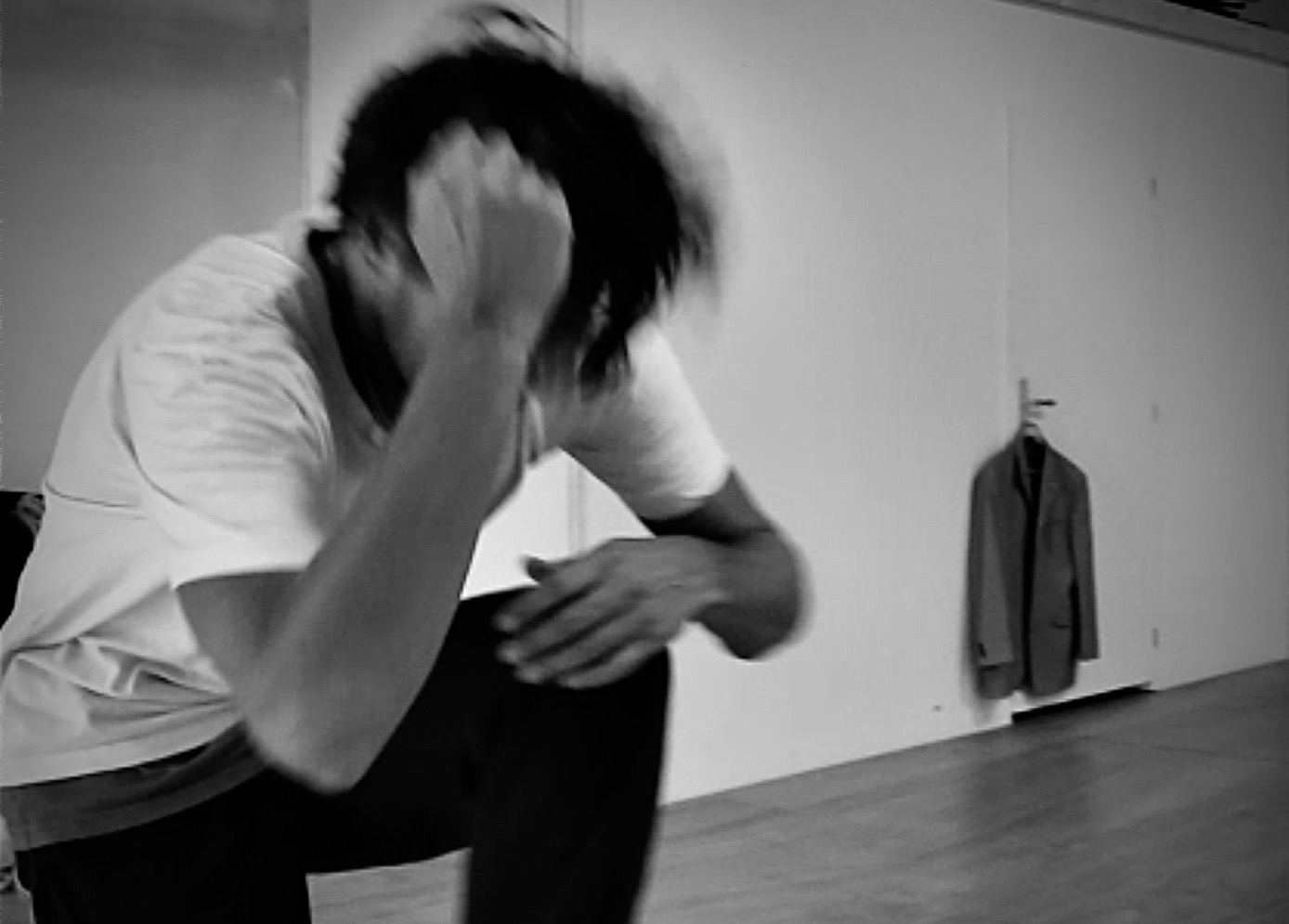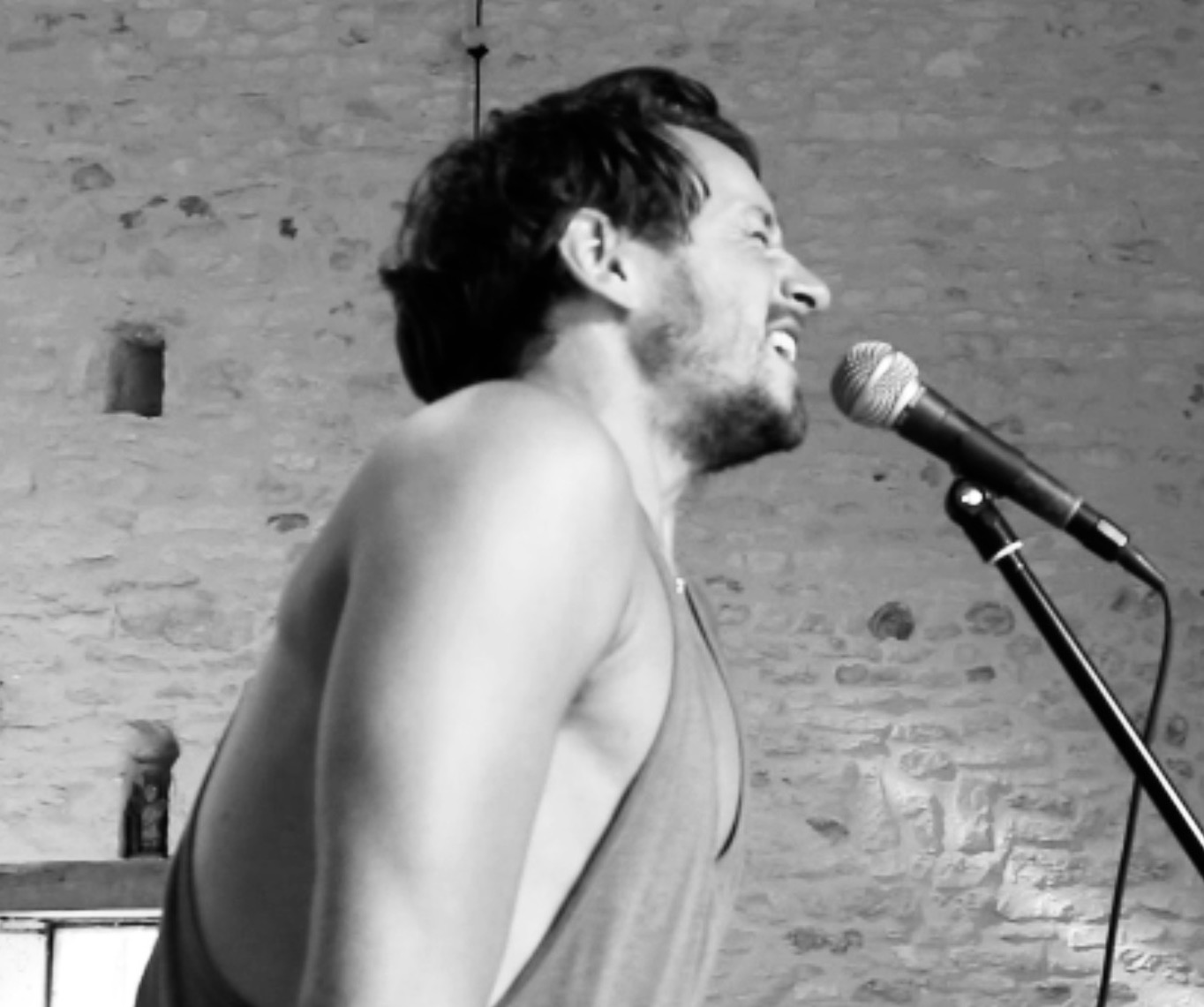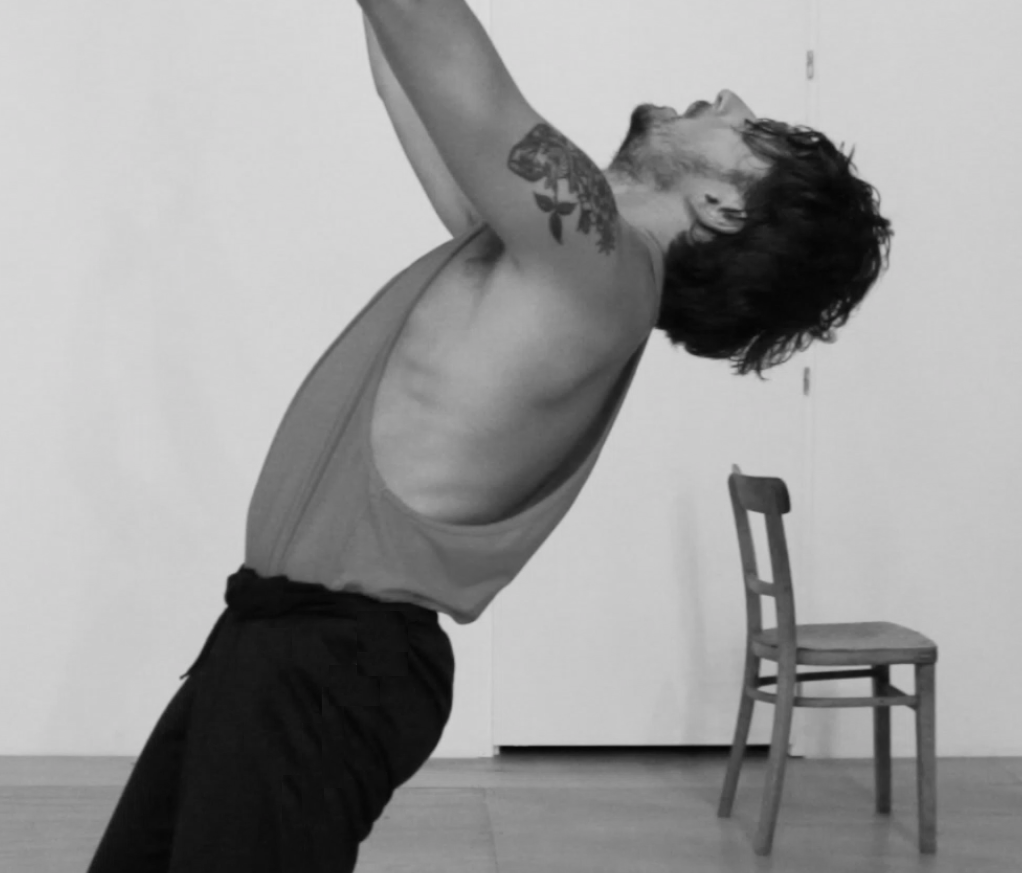All I can manage, more then I could
Premiere of the video-performance "All I can manage, more then I could" (Great Britain / France)
A Film Montage adapted in lockdown and reimagined from live performance, by Jim Ennis and Cai Tomos
Creators: Earthfall (Great Britain / France)
Director: Jim Ennis
Cast: Cai Tomos
Duration: 40 minutes (no intermissions)
Viewers' age: 14 +
ONLINE EVENT:
Date of the online video-performance: 28.08.2020 / Friday /
Time: 5 pm
Place: https://www.youtube.com/user/ChoreaTheatre / https://www.facebook.com/retroperspektywy/
Access: free, film available for 36 hours
Language: English / Subtitles: Polish
After the event we invite the viewers to an online meeting and discussion with the artists (Q&A formula).
The discussion will be held in English.
Place: https://www.facebook.com/retroperspektywy/
LIVE EVENT:
Date of the projection with the audience: 28.08.2020 / Friday /
Time: 5 pm
Place: Room C_101, Art_Inkubator in Fabryka Sztuki in Lodz
Admission: free, prior booking of free tickets is required
DESCRIPTION OF THE PERFORMANCE:
A Film Montage adapted in lockdown and reimagined from live performance, by Jim Ennis and Cai Tomos .
15 years later, or thereabout… What seemed an ending with an attempt to take ones' own life, another beginning, begins. It seems. Two chairs, two people, a body, a voice, a microphone, a meeting, a cold room, an apology, a desire to be detectives, forensic fragments of what can be recalled, made up fragments of what can't. Two humans going back to make sense... to go forward, to go back... And it goes on. Somehow. Weaving the autobiographical, the factual, the tragicomic truths and lies... extreme dance, film and dialogue. This performance demands us to ask ourselves, is this... All I can manage... more than I could.
The popularity of theatre work addressing the issue of mental health and well-being is increasing, as our understanding and our ability to express the truth that 1 in 4 of us are affected. As we "progress" with developments in technology and communication, more and more is available, more choices of how to live our life and what possible. But it seems that under the shadow of progression, and of choice lurks another kind of beast. Statistics show that young people are struggling with mental health. 4,623 male suicides in the UK in 2014, the second highest number in 15 years and the equivalent of 12 deaths a day. Three-quarters of suicides in the UK are by men. Each year in Wales between 300 and 350 people die from suicide, which is around three times the number killed in road accidents. The difficulty of "Suicide" is that the word carries with it a pungent fear, it’s a particular kind of fear that robs people of words. And so it goes as many difficult things go, into the undergrowth and the giant collective carpet where the unsaid get swept. Interestingly suicide is about choice, the choice to live, or the choice to take one’s life. In a world where young people have more "choice" and "freedom" than ever, why are we losing beautiful people? "Mental health" is a word I don’t understand any more. What is it to be healthy of mind? How do we know what constitutes health? How can we find it in relation to the culture we are in? Born in and grow up in?
This research would be the opportunity to try and open a dialogue about what it is now to be here, to be young, with the whole world of possibility In front of you and a beckoning "future". Using personal stories and gathering verbatim text from young men/women. What are the unsaid and hidden voices of the young saying about "now"? Is "freedom" what it used to be? Is there such a thing as "choice" when the conditioning of our culture plays a large percentage in the way we construct our choices in the first place. With heavy subjects such as depression and suicide to address. Paradoxically, humour offers a way in. Tragedy and the humorous live side by side. Humour allows us the space to laugh at the un-laughable and to look at all this heaviness with a gentler eye.
The possibility of this work first and foremost is to be a catalyst for us to be together as strangers feeling our way into the difficulty of putting a voice to all this. At some point in the evening integrated into, or following on from the work, will be a chance for us to speak together. The performance work becomes a reference point to facilitate discussion. The risk of this is open space to be with the audience reactions, feels an essential part of the work. The important reality of not knowing is woven in to the fabric of this piece. It has to be, when we are considering themes related to mind, suicide, mental health and belonging.
At the end of our first sharing of this work, a woman from the audience spoke about her depression. Her voice and experience in a way made the work real. It bought this theatrical experience closer in touch with her reality and it was the meeting of these, which was so very interesting. How her story rippled though the audience and allowed more people to speak. The concept of resonance, her kinesthetic understanding of the work, plus empathy, opened a possibility of communications. The possibility of theatre being part performance and part open space for discussion is very interesting. Having seen Ruby Wax's "staying sane" I was affected by the process of giving "the stage" at the end of the performance to the audience. So that their voices were heard.
I have in recent years been saddened by the passivity of some theatre, or that its original purpose vanished. From its origins, theatre was beyond "entertaining" but about serving something that needed serving in the collective. Theatre emerged from myth, ritual, and ceremony. We needed those rituals to make sense of our place. Early societies perceived connections between certain actions performed by the group or leaders in the group and the desired results of the whole society. The formulation of these actions, and the consequent repetition and rehearsal, broke the ground for theatre. According to the mythologist Joseph Campbell, rituals are related to three basic concerns: pleasure, power, and duty. Power - influencing and controlling events - was often the intention of rituals, such as ceremonies, to guarantee a successful crop, or to please the gods. With so many, or no gods to please, now, where do we go for solace? Do we still go to theatre for meaning?
"All I can manage, more than I could", asks many paradoxical questions. Like the middle point of a sea-saw. What do we "manage" in modern life? What happens to those of who don’t "manage"? What does managing mean in this society and culture? Where do we go when we don’t manage? And what helps us? What are the voices of culture that shape us? How can we challenge those voices? The performance looks at what constitutes a self? How do the biographical and cultural meet, what happens when we chose paths that challenge the cultural, and we choose the preservation of the self over belonging to a culture? The original live performance used authentic physicality and spoken word that demands answers from the body, psychotherapeutic theory, neuroscience, humour and film. Movement language that shifts from animal to human and back again. What makes a man a man, a woman a woman? What happens when you choose an other? How do you find your own belonging amongst a whole load of other humans who also wish to belong? Is depression an inevitable consequence for the young, to what’s happening in society? In reimagining the work for film, we are looking at what is the role of body and language in communicating the "wordless".
All I can manage, more than I could
Cai Tomos and Jim Ennis
INFORMATION ABOUT THE ARTISTS:
Earthfall - Formed in 1989 by Jessica Cohen and Jim Ennis with a policy of forging radical choreography with live music and strong visual imagery, Earthfall rapidly established itself as an outstanding exponent of innovative physical dance theatre. Earthfall seeks a personal honesty, passion and economy of movement to create vibrant and dynamic contemporary work. Earthfall has performed at many major festivals worldwide, and has featured in numerous TV and Radio broadcasts. The company has received several awards for its live performance and film work: the Bafta Cymru Award for Best Short Film, and the Theatre in Wales Award for Best Dance/Physical Theatre Production.
Jim Ennis - performer, director, writer, choreographer and lecturer. Training in England at Dartington Hall College of Arts from 1974-1977. In 1978 he founded a performance company and moved to Holland collaborating with Performance Artists and the Dutch National Ballet also he attended Grotowski's Theatre Laboratory in Poland. In 1978-1983 he was a principal performer and collaborator with Dutch international Theatre Research Group Kiss, touring throughout the world. He authored 3 plays and co-authored The Theatre Research Book. In 1984 Ennis joined the Cardiff Laboratory Theatre in the UK, he was also invited to perform with the Gardzienice Theatre Association, Poland, remaining with them until 1989 also in that year he formed Earthfall with Cohen. With Earthfall Ennis initially started as Director/Performer but then concentrated solely on directing, choreographing and co-devising all the company's works. Ennis continues his relationship with Polish theatre with Earthfall co- directing three works with Theatre Association Chorea. Ennis has taught extensively at several universities including being a lecturer in theatre studies at Yale University USA.
Cai Tomos - dancer, choreographer, performer, therapist. His work is influenced by his preoccupation with the psychological and psychosocial aspects related to dance and dancing, his work includes performance and instillation. His interest lies in a fluidity of working with both professionals and "non-professionals". Much of his work is based on offering the stage to bodies that don’t often get seen in dance and in theatre, and for those who have never performed, challenging the aesthetics what constitutes dance, and uncovering peoples own movement styles are part of his preoccupations. He works in participatory arts within various contexts offering workshops in dance for those in hospitals, mental health settings, those with addiction, older people, as well as professional actors and dancers in the UK and Europe. His work is deeply rooted in exploring notions of energy and memory within the body with reference to the personal and the collective stories, which the body holds. Improvisational dance practices are the foundation of his creative process. His workshops are based on a creative process that supports the development body-mind awareness. He is currently an associate artist of Galeri Arts Centre in North Wales where he facilitates movement for wellbeing sessions for elders, and a performance company for the over 60s. He has worked as a lecturer in dance at the University of Chichester since 2007-2014, and completed his studies in 2013 at the Institute for Arts and Therapy in Education and has been awarded an MA qualification in integrative Arts Psychotherapy. He is currently in the process of training in Somatic experiencing as a trauma therapist.
LINKS:


